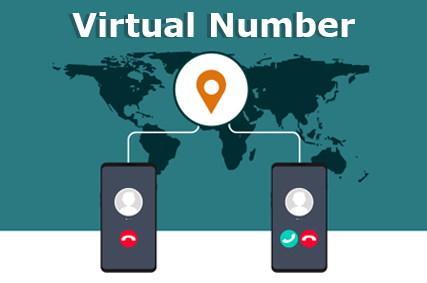
Introduction
Virtual number services have revolutionized the way businesses manage their telecommunications. These services offer a range of features, including call routing and forwarding, which are essential for efficient communication. In this article, we will delve into how virtual number services handle call routing and forwarding, exploring their functionality, benefits, and challenges.
If you’re looking for a reliable virtual number provider in India, consider exploring the offerings of leading telecommunications companies in the region.
Understanding Call Routing
Call routing is the process of directing incoming calls to the appropriate destination based on predefined criteria. Virtual number services utilize sophisticated algorithms to determine the best route for incoming calls, ensuring they reach their intended recipients promptly.
Understanding Forwarding
Call forwarding allows users to redirect incoming calls from one number to another. This feature is particularly useful for businesses with distributed teams or remote workers, as it ensures calls are forwarded to the right individuals regardless of their location.
How Virtual Number Services Work
Setting up virtual numbers involves assigning unique phone numbers to specific users or departments within an organization. These numbers can be configured to route calls based on various parameters, such as time of day, caller location, or IVR menu selections.
Call Routing Options
Virtual number services offer a range of call routing options, including:
- Time-based routing:
- Directing calls to different destinations based on the time of day.
- Location-based routing:
- Routing calls to specific locations or offices based on the caller’s geographical location.
- IVR routing:
- Using interactive voice response menus to guide callers to the appropriate department or extension.
Call Forwarding Mechanisms
Virtual number services employ various call forwarding mechanisms to ensure seamless communication:
- Sequential forwarding: Routing calls to multiple numbers in a predefined sequence until they are answered.
- Simultaneous forwarding: Forwarding calls to multiple numbers simultaneously to improve responsiveness.
- Selective forwarding: Allowing users to specify criteria for call forwarding, such as caller ID or time of day.
Benefits of Virtual Number Services
Virtual number services offer several advantages for businesses:
Increased Accessibility
By providing multiple contact numbers and routing options, virtual number services ensure that businesses are accessible to customers round-the-clock, regardless of their location or time zone.
Improved Customer Service
Efficient call routing and forwarding capabilities enable businesses to deliver exceptional customer service, ensuring that calls are promptly answered and routed to the appropriate personnel.
Cost-Effectiveness
Virtual number services eliminate the need for expensive hardware and infrastructure, making them a cost-effective solution for businesses of all sizes.
Challenges and Solutions
While virtual number services offer numerous benefits, they also present challenges, such as call routing complexities and potential issues with call forwarding. However, advancements in technology and innovative solutions have addressed many of these challenges, ensuring reliable and efficient communication.
Security Considerations
Security is a crucial aspect of virtual services, especially concerning call routing and forwarding. Encryption protocols and authentication measures help safeguard sensitive information and prevent unauthorized access to communications.
Popular Virtual Number Service Providers
Several companies offer virtual services, each with its unique features and pricing plans. Popular providers include Twilio, Grasshopper, and RingCentral, among others. Comparing features and reviews can help businesses choose the right provider for their needs.
Future Trends
Advancements in call routing technology, such as AI-driven routing algorithms and predictive analytics, are poised to further enhance the capabilities of virtual services. Additionally, the evolution of communication platforms and the rise of remote work are expected to drive the adoption of virtual number services in the future.
Conclusion
Virtual services play a pivotal role in modern business communications, offering advanced call routing and forwarding capabilities that improve accessibility, customer service, and cost-effectiveness. By understanding how these services work and leveraging their benefits, businesses can enhance their communication infrastructure and stay ahead in today’s competitive landscape.
About Us:
“Space Edge Technology” appears to be a term that might refer to a company, concept, or technology related to space exploration or utilization. However, without further context, it’s challenging to provide specific information.
Read More… https://asapmix.com/







